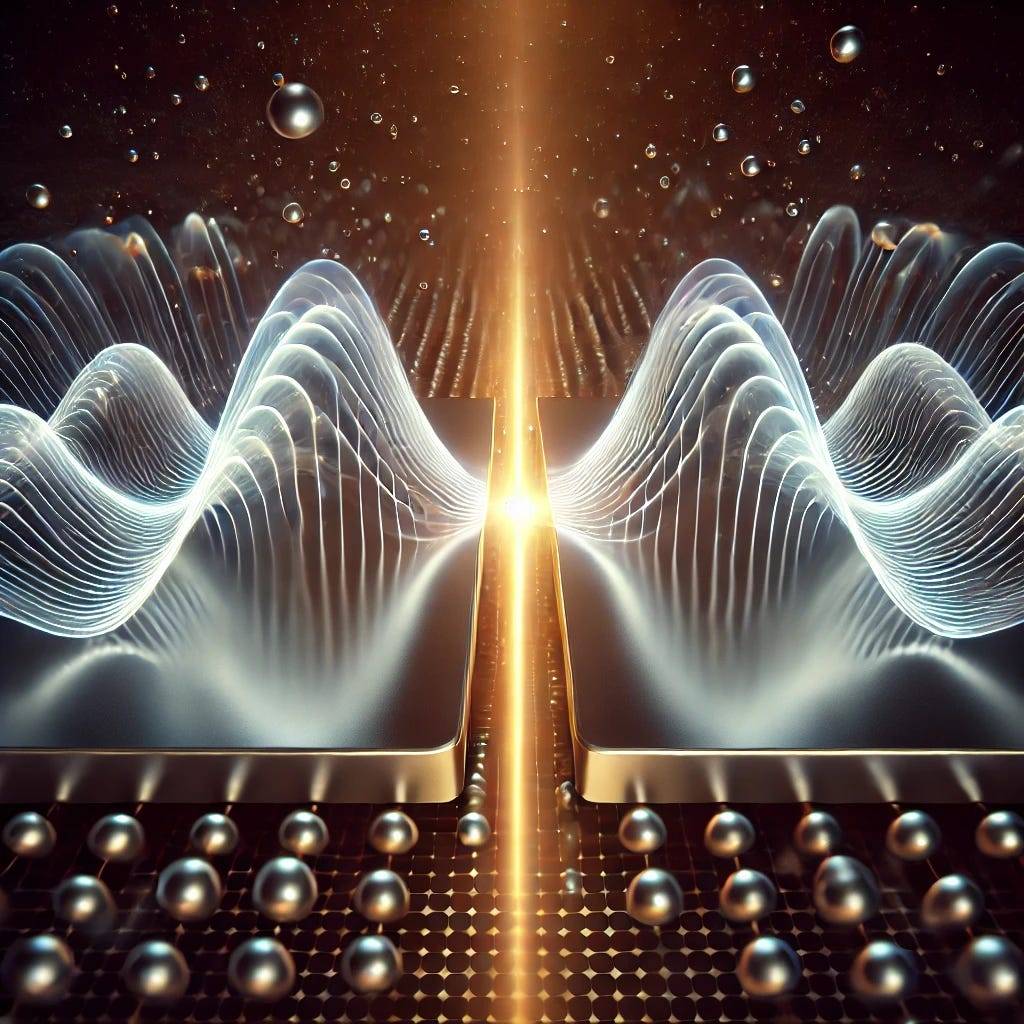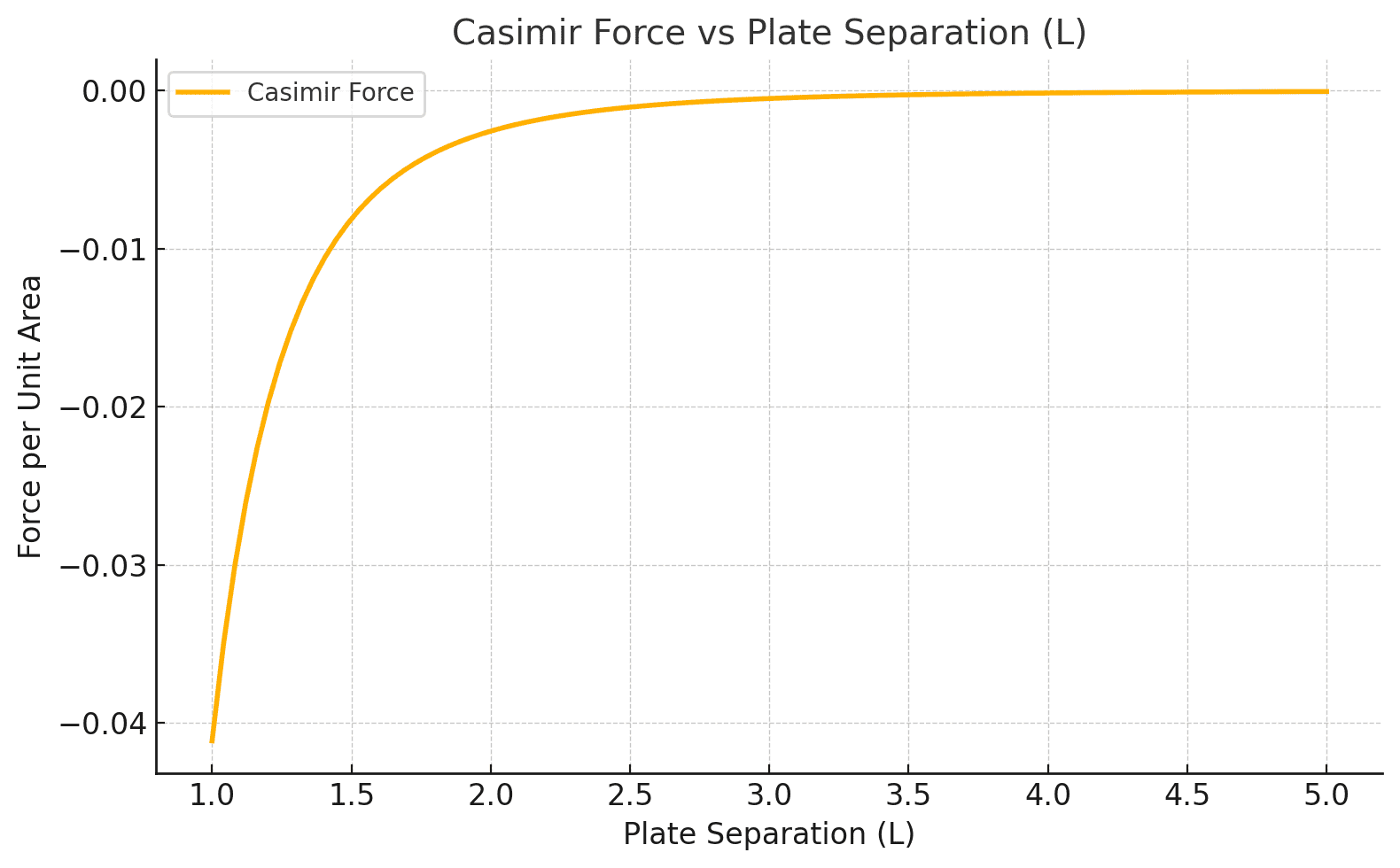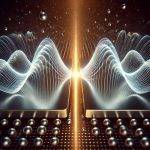
The whisper of quantum mechanics meets the roar of Einstein’s relativity in a profound yet subtle way — through the Casimir effect. This enigmatic quantum phenomenon reveals the delicate influence of vacuum fluctuations on macroscopic forces, particularly when studied within the framework of stochastic semi-classical gravity. As researchers delve into this nuanced relationship, they unlock insights that could redefine our understanding of quantum gravity and the interplay between fundamental forces.
The Casimir Effect — A Quantum Anomaly
The Casimir effect exemplifies how quantum mechanics manifests in tangible, measurable phenomena.
First theorized in 1948, the Casimir effect describes the attraction between two neutral, conductive plates due to electromagnetic quantum fluctuations in a vacuum. These fluctuations create a negative energy density between the plates, inducing an attractive force that defies classical expectations. While the force is minuscule at macroscopic scales, it becomes a dominant factor in nanoscale systems, influencing the design of devices in nanotechnology and other advanced fields.
Mathematically, the Casimir energy density is proportional to , where is the separation between the plates. For instance, studies illustrate how the energy density diminishes steeply as the plate distance increases. This quantum peculiarity underscores the profound impact of boundary conditions on vacuum fluctuations, opening avenues to explore broader implications in quantum field theory.
Stochastic Semi-Classical Gravity and Its Role
What happens when quantum mechanics meets gravity? Stochastic semi-classical gravity provides a framework to find out.
This theory bridges classical general relativity with quantum field theory, allowing researchers to model quantum fluctuations’ effect on spacetime. Unlike traditional semi-classical gravity, which treats vacuum energy as a static entity, stochastic gravity incorporates fluctuations dynamically, using the Einstein-Langevin equation to account for noise kernels — representations of stress-energy fluctuations.
One compelling aspect explored in recent studies is how weak gravitational fields modulate the Casimir force. The Einstein-Langevin equation reveals corrections sensitive to the order parameter of the gravitational field. This sensitivity suggests that even subtle gravitational perturbations can substantially alter vacuum energy dynamics, providing an experimental and theoretical window into quantum gravity.
The Interplay of Geometry, Quantum Forces, and Spacetime
How does spacetime curvature influence quantum phenomena like the Casimir effect?
In curved spacetime, quantum fluctuations interact with gravitational fields, creating complex dynamics. For example, gravitational waves — a macroscopic phenomenon — can induce a Casimir-like force between mirrors, demonstrating how quantum and relativistic realms intersect. The role of geometry is pivotal; conducting plates in non-flat spacetime modify vacuum energy density and, consequently, the Casimir force.
Research shows how this force per unit area changes as a function of plate separation, revealing a striking inverse relationship. The findings suggest potential experimental setups for detecting quantum gravitational effects by measuring Casimir forces under varying geometries and gravitational influences. This intersection highlights the rich interplay between quantum mechanics and general relativity.
Below is an example visualization that illustrates how the Casimir force changes with varying plate distances under different gravitational settings.

Quantum Forces Emerge from Nothing
The Casimir effect arises purely from vacuum fluctuations, showing that “empty space” is a hotbed of quantum activity.
A Force for Nanotechnology
At nanoscale separations, Casimir forces dominate over classical forces, requiring engineers to account for them in device designs.
Spacetime Curvature Changes Everything
In curved spacetime, the Casimir force can either amplify or diminish, offering a unique tool for probing quantum gravitational effects.
Gravitational Casimir Effect?
Theoretical studies suggest gravitational waves might induce a Casimir-like force, hinting at a new way to detect quantum gravity.
Zeta Function Mysteries
The energy density computations rely on the Riemann zeta function, linking this quantum effect to one of mathematics’ greatest unsolved problems.
Toward a Unified Quantum Gravity Framework
The Casimir effect serves as a microcosm of the quantum-gravity interplay, illuminating how vacuum fluctuations influence macroscopic phenomena. As researchers refine stochastic semi-classical gravity frameworks, the dream of uniting quantum mechanics with general relativity feels ever closer. Whether through experimental innovations or theoretical breakthroughs, the Casimir effect remains a tantalizing glimpse into the quantum structure of spacetime.
About Disruptive Concepts
Welcome to @Disruptive Concepts — your crystal ball into the future of technology. 🚀 Subscribe for new insight videos every Saturday!
See us on https://twitter.com/DisruptConcept
Read us on https://medium.com/@disruptiveconcepts
Enjoy us at https://disruptive-concepts.com
Whitepapers for you at: https://disruptiveconcepts.gumroad.com/l/emjml
New Apps: https://2025disruptive.netlify.app/







